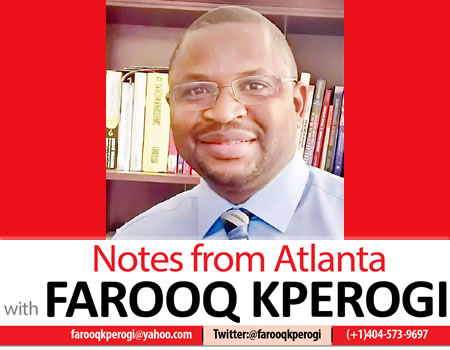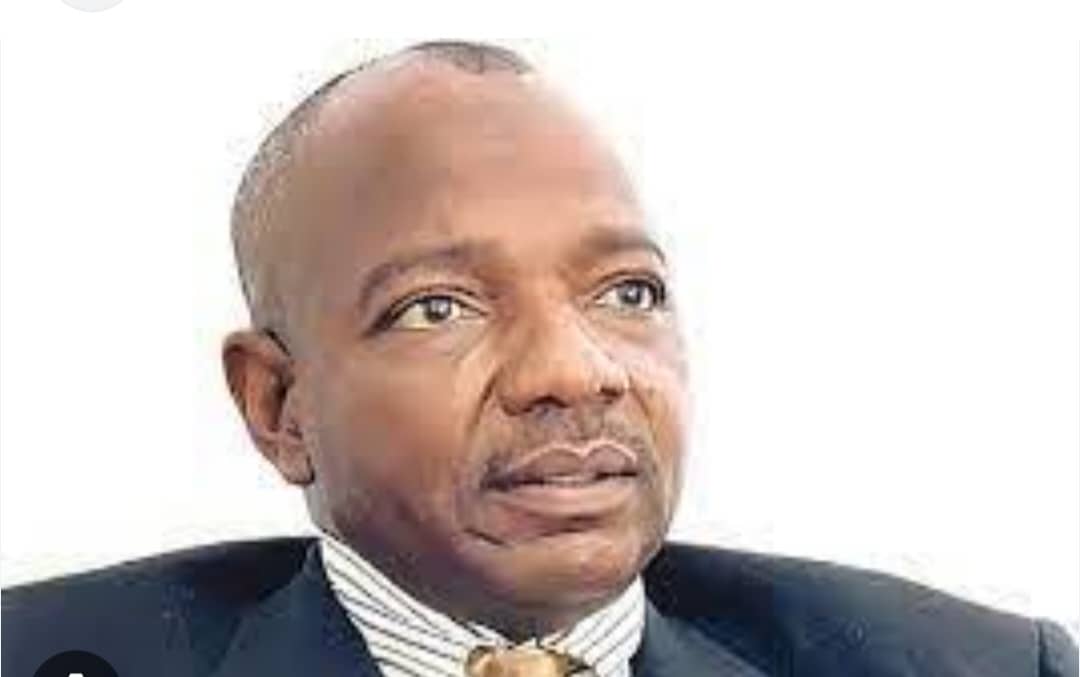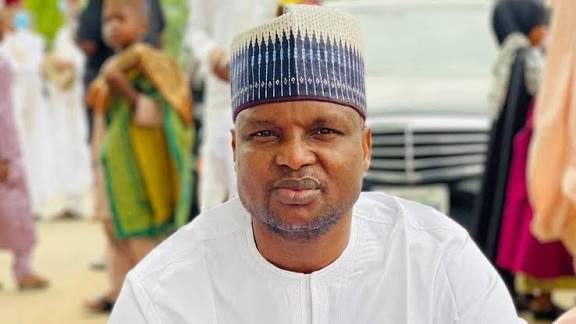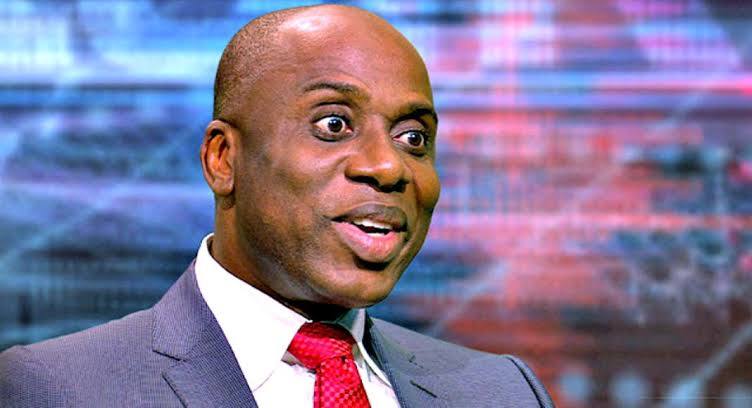MACHINA. Machination. Machiavellianism. These words might strike the reader as merely the product of a writer’s indulgentalliterative excitement. But they are not. In them, hangs the future and integrity of the 2023 election. Ignore them and risk another massive electoral heist that might doom Nigeria’s pretend democracy finally.
Who is Machina and who is machinating against him? Well, Bashir Machina is the name of the Yobe politician who won the APC primary election for the Yobe North Senatorial District that Senate President Ahmed Lawan currently occupies. Recall that Lawan forfeited his chance to stand in for the primary election to re-represent his senatorial district because he was caught in a maddeningly wild goose chase to be the APC presidential nominee.
After his humiliating fourth-place finish in the presidential primary election, Lawan, in a fit of exasperating political rapacity and self-entitlement, asked to be handed over the Yobe North APC senatorial ticket that he didn’t— and couldn’t— vie for. Had Machina, the legitimate winner of the election, withdrawn from the ticket or died, that might have been possible.

But Machina insists he is the rightful candidate to represent Yobe North on APC’s ticket and has no plans to stand down for Lawan. It was from this moment that an in-your-face Lawan-inspired INEC machination against Machina started to get really menacingly Machiavellian—and with premonitory implications for all of Nigeria.
INEC monitored the primary election that produced Machina as the winner of the primary election and later issued his lawyer by the name of Ibrahim Bawa, SAN, a Certified True Copy of the result of the election.
That should have settled the issue once and for all. But INEC and Lawan have other plans. First, Lawan asked his party, the APC, to turn in his name as the APC candidate for Yobe North on INEC’s portal even though this is a clear-cut violation of the law since he neither won nor even participated in a senatorial primary election.
The law mandates INEC to reject names of candidates submitted to it that didn’t emerge from the validly conducted primary elections it observed, but INEC refused to reject Lawan (and other shady politicians like him who want to have their cake and eat it) and instead said aggrieved parties who feel short-changed should litigate. That was singularly irresponsible and derelict of INEC, but, in retrospect, it was unsurprising because it’s all part of the Machiavellian machination.
As Femi Falana, SAN, reminded INEC a few weeks back, section 84 (13) of the Electoral Act provides that “Where a political party fails to comply with the provisions of this Act in the conduct of its primaries, its candidate for election shall not be included in the election for the particular position in issue.”
INEC has been impelled by a heavy swell of public opinion to exclude Lawan’s name from its register (for now, that is), but were it the neutral arbiter that it is statutorily required to be, it should have come out to declare in no uncertain terms that Ahmed Lawan was not and could not possibly be a candidate for the Yobe North senatorial election in 2023 because he did not participate in the primary election for that position. What we’ve seen from INEC instead have been embarrassingly outrageous prevarications, caginess, and tedious deceit.
When, for example, Channels TV asked INEC commissioner Festus Okoye if INEC would reject candidates presented by their political parties who did not emerge from valid primaries monitored by INEC, he pointedly said he could not answer that question! Can you beat that?
It’s like a police officer saying he couldn’t answer a question about if he would arrest a criminal. It showed there were some sacred cows he was scared of. It betrayed INEC’s brazen emotional and personal investment in the political fraud of its favored politicians.
Now INEC’s Machiavellian machination against Machina is going full circle. It emerged on September 5 that INEC filed a counter affidavit at the Federal High Court into invalidate Bashir Machina’s primary election win!
According to the Daily Nigerian, “In a bid to get favourable judgement for the President of the Senate Ahmad Lawan, the Independent National Electoral Commission, INEC, has contradicted itself by discrediting the May 28 APC senatorial primary election of Yobe North that produced Bashir Machina as the senatorial candidate of the party.”
In a case filed by an INEC lawyer by the name of Onyechi Ikpeazu, SAN, INEC discredited the result of an election it observed, validated, certified, and publicized. “In the counter affidavit, the electoral umpire said the primary election was conducted by Yobe State officers of the APC and not [the]national committee of the party as required by the law,” according to the Daily Nigerian.
read more
Tribune Online
2h
slide-image
slide-image
Queen of England’s remains leave
Balmoral for final journey
My journey from prison to global stage —Burna- Boy-
Share Story
About
Login
So, get this: it isn’t the APC leadership that is suing Machina to discredit the INEC-issued Certified True Copy of the result of his primary election win. In fact, it isn’t even Lawan who’ll be the direct beneficiary of the fraud. It is INEC that is in a legal contest against itself to protect a preferred candidate. The gloves are off.
Nonetheless, as is now usual when INEC’s fraud becomes center stage in public consciousness, INEC has come out again to issue a tepid, intentionally convoluted repudiation of its own legal challenge to Machina in order to put the wool over the eyes of Nigerians.
In a September 8 press statement, Festus Okoye said, “the Commission will review its quality assurance protocols, including the preview by appropriate ranking Officials of all processes filed on its behalf to ascertain their correctness in all material particulars with all reports and all information at its disposal before their presentation so that a situation like this is not repeated.”
But that’s neither here nor there. People who have followed this case as closely as I have know that people at the upper echelon at INEC have decided to pitch their tent with Ahmed Lawan, and that this latest bizarre INEC lawsuit against Machina on behalf of Lawan had been foreshadowed by Festus Okoye himself.
In a July 26, 2022, interview with Channels TV, for example, Okoye said, “[Resident Electoral Commissioners] are not recognized members of INEC and the commission is not bound by the reports of party primaries monitored by state offices because they also send monitors from Abuja that write reports to INEC headquarters.”
When I heard it then, I wondered why INEC would issue a legally binding, certified true copy of the result of an election monitored by its unit that it doesn’t recognize. I also wondered why they were not bound by a document that they formally issued.
Now, the latest lawsuit, which INEC is now trying to artfully deflect, makes clear what all this had been about: it was a preemptive rhetorical strike to protect Lawan’s fraud and to justify this shameless, preplanned litigious rape against a political candidate that INEC doesn’t like.
And it’s all coming together. Recall that Sahara Reporters had reported weeks ago that certain influential persons called the outgoing Resident Electoral Commissioner for Yobe by the name of Ahmad Makama and instructed him to sign and back-date a document by the APC to show that there had been official communication that recommended Ahmed Lawan to be on the ballot for the Yobe North Senatorial election. Makama repelled them.
The Machina machination is just a test run, which will be replicated and mass-produced if it succeeds. I don’t know Machina, don’t know anyone who knows him, and have no opinions about him. But there is something about his name and his case that serves as a signpost for the 2023 election.
There are scores of politicians across the nation that share the exact same fate as he that we aren’t talking about because they don’t enjoy the same media and political limelight that being an opponent to the Senate president confers. We need to pay attention to them, too.
But it suffices for now to say that we are witnessing a new phase of electoral umpire partisanship that we had never seen before. INEC isn’t even pretending anymore. It is suing politicians on behalf of other politicians. This is the lowest watermark of partisan chicanery from an electoral umpire that I have ever seen.
In theory, there are now several structural safeguards, such as BVAS and electronic transmission of results, to guarantee a fair count, but only people of integrity and heightened moral conscience can make systems work. I have deep fears for the 2023 election.




